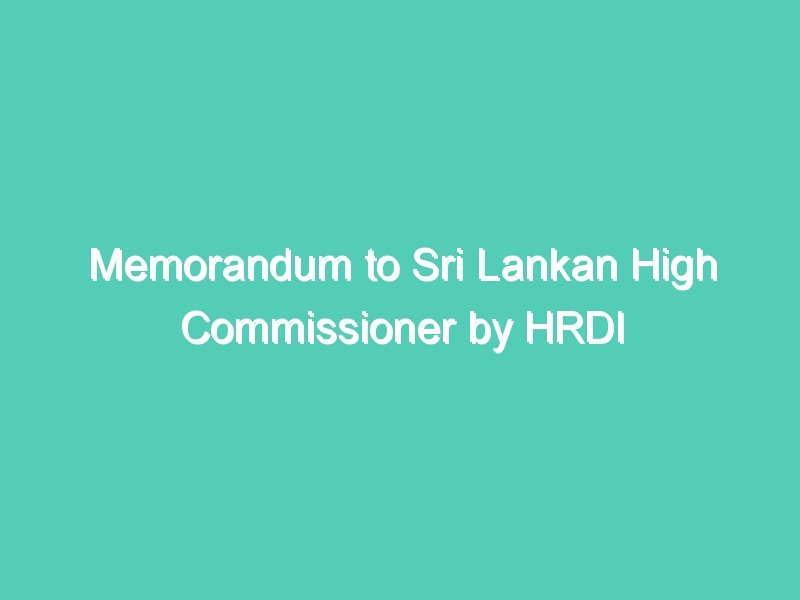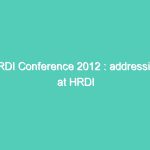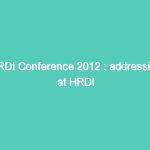His Excellency Mr. Prasad Karivasa, Date:5th April, 2012
Hon’ble High Commissioner,
High Commission of Sri Lanka,
New Delhi.
MEMORANDUM
His Excellency,
Human Rights Defense International (HRDI) is an organization committed to the human rights concerns of Indian Diaspora and has always supported the right of Tamils to have equal opportunities in all spheres of life in Sri Lanka.
HRDI and other human rights activist and organizations around the world are disturbed to know about the mass killing of civil population in Sri Lanka in the last phase of conflict between Sri Lankan Army and LTTE. There is ample evidence that the senior officers of Government of Sri Lanka did not take necessary steps to minimize the loss of life of civil population and also failed to provide adequate medical facilities, blood and life saving drugs to the civil population in the area of conflict. The reports of use of heavy weaponry targeting NO FIRE ZONE, where the civil population had taken their refuge as per the advice of the Government of Sri Lanka, are distressing.
Your Excellency, you are aware of the fact that a growing number of organizations and governments of the international community that has recently gathered at the 19th session of the Human rights council in Geneva have growing concerns about the reconciliation and development process in the northern territory of Sri Lanka. The victims of terror and war on both sides require massive help in establishing a life that the UN declaration of human rights upholds to them and of which Sri Lanka is a signatory.
While the programs and actions of the government of Sri Lanka have been undertaken with a lot of determination and effort which is commendable, it has to be acknowledged that wounds of 30 years of civil war cannot be solved
within a few years and that the involvement of Non-governmental organizations that are active in peace building are crucial to complement and assist the efforts the Sri Lankan government has undertaken so far.
It may take as long as the conflict took to heal and reestablish the rule of law based on human rights in the inflicted territories. Hence, International Organizations and NGOs that do not have a political agenda behind them should be welcomed in Sri Lanka to assist governmental programs of development and community reconciliation instead of claiming that the government will do it all alone. This has led to a growing contempt of the international community and of Sri Lankan citizens who have to continue to suffer from the effect of the civil war longer and with more additional suffering which could be avoided through more collaboration.
While the respect for the sovereignty of the country of Sri Lanka is essential in cooperating with the government, it is regrettable that any aid coming from outside of Sri Lanka is categorically blocked as part of the official foreign relations policy. The Sri Lankan ambassador to the United Nations in Geneva have made it clear that any foreign aid is rejected, international organizations are not allowed to assist the government to implement an human rights approach in Sri Lanka, and the country perceived itself to be treated unfairly by the International community.
Recent harassments of Human rights activists by pro governmental agents of Sri Lanka during the NGO side events at the Human rights council panels have been brought to the attention of the Office of the High commissioner of Human rights (OHCHR) and the High Commissioner herself heard these reports during a meeting with NGOs during the Human rights council session. It was scandalous to witness the inappropriate behavior and disturbance created by Sri Lankan delegates on UN grounds. Activists who have presented at the Human rights council have become victims of media campaigns that depicted them as traitors to their country and other methods of defaming and misinforming the Sri Lankan public. This behavior of Sri Lankan delegates and journalists of Sri Lanka who have behaved in the above mentioned manner have created great harm to the image of the Sri Lankan government which is regrettable.
The expulsion of Human rights Organizations which are known throughout the world as independent watch dogs, has further fostered the urgency and need of the International community to ask the government of Sri Lankan to open its doors for technical assistance to deal with the peace and reconciliation process in the northern territory.
The government of Sri Lanka needs to understand that their own capacity to heal and reconcile in post conflict area is not sufficient and should welcome the international organizations and NGOs that do not have a political agenda behind them to assist Governmental Programs of Government and community reconciliation.
We hope that the recent protests that have been organized in front of the UN in Geneva by Sri Lankans as well as which has been organized on the 5th of April by Human rights Defense International (HRDI) at New Delhi do open doors of cooperation. It is a voice of concern, and not of threat, and people demand action because their fellow humans are continuing to suffer.
We wish to communicate to the government of Sri Lanka that to work more close and transparent with the UN Office of the High Commissioner of Human rights, UN members states and Non-governmental organizations that offer their assistance would be an important step to increase the efforts of the Sri Lankan government to help the Sri Lankan people to live a life of dignity in peace and security.
Peace and reconciliation is a long process and we hope that we can work together to assure that peace and prosperity will prevail in Sri Lanka.
Rajesh Gogna,
(Secretary General)
E- rajeshgogna@hrdi.in
W- www.hrdi.in
L- 91 11 23 71 89 29
M- 99 11 22 22 51.



